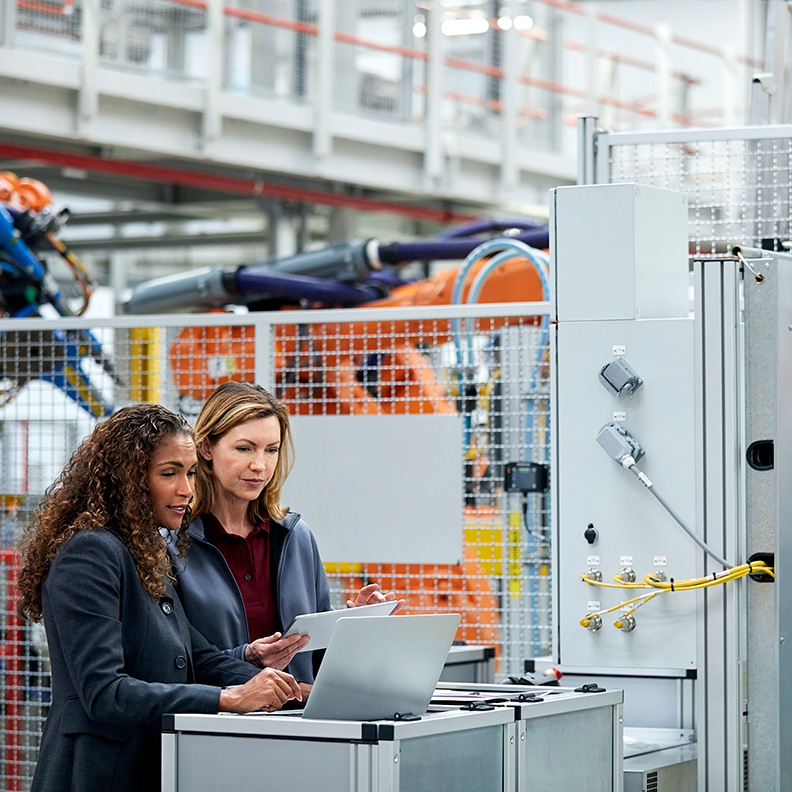Artificial intelligence has rapidly emerged as a transformative force across multiple industries, with manufacturing showing some of the most promise. Manufacturers have been at the forefront of developing and implementing intelligent systems and AI technologies, including machine learning, natural language processing, robotics and more.
Even more innovation is likely to come soon, as 96% of manufacturers plan to increase AI investments in operations by 2030, according to the Manufacturing Leadership Council1. AI is quickly revolutionizing how factories operate, leading to improved efficiency, reduced costs and enhanced product quality. While benefits are being seen across the board, these five key areas are having a significant impact on bottom lines:
Predictive maintenance Sensors embedded in machinery collect data on temperature, vibration and more, which AI models can then process to predict when equipment is likely to fail. Instead of relying on scheduled maintenance, manufacturers can service machines only when needed, which reduces downtime, lowers maintenance costs and extends equipment life.
Quality control Similar to predictive maintenance, AI systems can also identify issues within product lines, such as misalignments or faulty components. Identifying and discarding flawed products early in the production process helps manufacturers save precious time and money.
Supply chain optimization Using technology to forecast the demand and movement of critical parts can be a big boost to a manufacturer’s supply chain process, leading to reduced transportation costs and an optimized production schedule.
Robotics and automation Collaborative robots, or “cobots,” are helping to streamline work on the factory floor. Unlike traditional industrial robots that are often isolated from human workers, cobots are designed to work alongside humans. These sophisticated machines can perform repetitive tasks such as assembly, welding and packaging, freeing human workers to focus on more value-added work.
Personalized and on-demand manufacturing AI is enabling the shift from mass production to more personalized, small-scale manufacturing without significantly increasing production costs or lead times. In turn, this is opening the door for manufacturers to find new opportunities within niche markets.
Challenges, considerations and the road ahead
While AI offers significant benefits to manufacturers, its adoption is not without challenges. One of the main hurdles is the integration of AI into existing processes and systems. Many manufacturers rely on legacy equipment and infrastructure that may not be compatible with newer technologies, requiring substantial investment in upgrades and digital integration. Connect with your financial partner to discuss your future technology needs and map out an investment plan that makes sense for your operation. Incentives, such as tax credits and grants, are also regularly offered to companies seeking to implement new technologies, so be sure to talk with your banker, tax professional and local government officials about what may be available.
Data security and privacy are also top concerns, particularly as AI systems become more interconnected with other operational technologies. Manufacturers must ensure that their AI systems are secure from cyberattacks that could disrupt production or compromise sensitive information.
Despite these challenges, the future for AI within manufacturing looks bright, and the pace of innovation doesn’t seem to be slowing down anytime soon. Additionally, as these new technologies evolve, they’re becoming more accessible to small and medium-sized manufacturers, not just large companies. This makes it critical for your operation to have a sound technology plan in place to ensure you keep up with the competition and can unlock new efficiencies through the power of AI.

